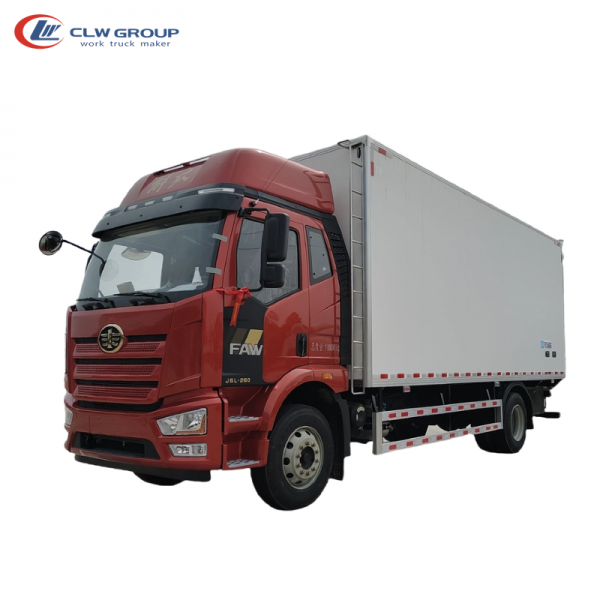Introduction
Truck-mounted cranes have revolutionized the construction and logistics industry by providing a versatile and mobile solution for lifting and moving heavy loads. These cranes are an essential tool for various industries, including construction, transportation, and utilities. One crucial aspect that sets some truck-mounted cranes apart is their high torque capabilities. In this article, we will explore the significance of high torque in truck-mounted cranes, its benefits, applications, and the latest advancements in this technology.
Understanding Torque in Truck-Mounted Cranes
Torque is a crucial factor in the performance of any crane, including truck-mounted cranes. In simple terms, torque refers to the rotational force generated by the crane's engine or motor to lift and move heavy loads. High torque in a truck-mounted crane translates to increased lifting capacity, faster operation, and improved efficiency.
The ability of a crane to generate high torque is influenced by various factors, including the design of the crane's hydraulic system, the power output of the engine, and the gearing mechanism. By optimizing these components, manufacturers can enhance the torque capabilities of truck-mounted cranes, making them more powerful and versatile in handling a wide range of lifting tasks.
Benefits of High Torque in Truck-Mounted Cranes
1. Increased Lifting Capacity: One of the primary benefits of high torque in truck-mounted cranes is the ability to lift heavier loads. With greater torque, the crane can exert more force to lift and move heavy objects, expanding its lifting capacity and versatility on the job site.
2. Faster Operation: High torque enables truck-mounted cranes to operate more efficiently and quickly. The crane can lift and lower loads at a faster pace, reducing cycle times and improving overall productivity on the job site. This efficiency is crucial in time-sensitive projects where speed and precision are essential.

3. Enhanced Stability: High torque not only increases the lifting capacity of the crane but also improves its stability during lifting operations. The increased torque provides better control over the load, minimizing sway and ensuring safe and accurate lifting and positioning of heavy objects.
4. Improved Energy Efficiency: High torque allows truck-mounted cranes to perform lifting tasks with less strain on the engine, resulting in improved fuel efficiency and reduced operating costs. By optimizing torque output, manufacturers can design cranes that deliver high performance while minimizing energy consumption.
Work trucks with mobile office setups of Truck-Mounted Cranes with High Torque
Truck-mounted cranes with high torque find applications across various industries due to their versatility and power. Some common applications include:
1. Construction: Truck-mounted cranes are widely used in the construction industry for lifting and moving heavy materials such as steel beams, concrete panels, and machinery. High torque cranes are essential for handling large and bulky loads with precision and efficiency on construction sites.
2. Utilities: Utility companies rely on truck-mounted cranes with high torque for tasks such as pole setting, transformer installation, and maintenance of power lines. The superior lifting capacity and stability of these cranes make them ideal for handling heavy equipment and materials in utility operations.
3. Transportation: Truck-mounted cranes are used in the transportation industry for loading and unloading cargo, installing signage, and handling oversized shipments. High torque cranes are essential for efficiently lifting and positioning heavy loads onto trucks and trailers, ensuring smooth and safe transportation of goods.
4. Oil and Gas: Truck-mounted cranes play a crucial role in the oil and gas industry for tasks such as equipment maintenance, well servicing, and pipeline installation. High torque cranes are required to lift and maneuver heavy components in challenging environments, such as offshore platforms and remote oil fields.
Advancements in High Torque Technology
Manufacturers of truck-mounted cranes are continuously innovating to enhance the torque capabilities of their machines. Some of the latest advancements in high torque technology include:
1. Advanced Hydraulic Systems: Manufacturers are developing more efficient hydraulic systems that deliver higher torque output while minimizing energy loss. By optimizing the design and components of the hydraulic system, cranes can achieve greater lifting capacity and performance.
2. Electronic Control Systems: The integration of electronic control systems in truck-mounted cranes allows for precise torque management and control. These systems enable operators to adjust torque output based on the specific lifting requirements, improving safety and efficiency on the job site.
3. Hybrid Power Systems: Hybrid power systems, combining traditional fuel-powered engines with electric motors, are being used in truck-mounted cranes to enhance torque capabilities. These systems provide an additional power boost when needed, enabling cranes to tackle heavier loads with ease.
4. Lightweight Materials: Manufacturers are incorporating lightweight materials such as high-strength steel and aluminum alloys in the construction of truck-mounted cranes. By reducing the overall weight of the crane, manufacturers can improve torque efficiency and lifting performance without compromising on strength and durability.
Conclusion
Truck-mounted cranes with high torque capabilities are essential tools for various industries, offering increased lifting capacity, faster operation, and enhanced stability on the job site. The significance of high torque in these cranes cannot be overstated, as it directly impacts their performance and efficiency in handling heavy loads. With advancements in technology and continuous innovation, manufacturers are pushing the boundaries of torque capabilities in truck-mounted cranes, making them more powerful and versatile than ever before. As the demand for efficient and reliable lifting solutions continues to grow, high torque truck-mounted cranes will play a crucial role in meeting the evolving needs of the industry.
